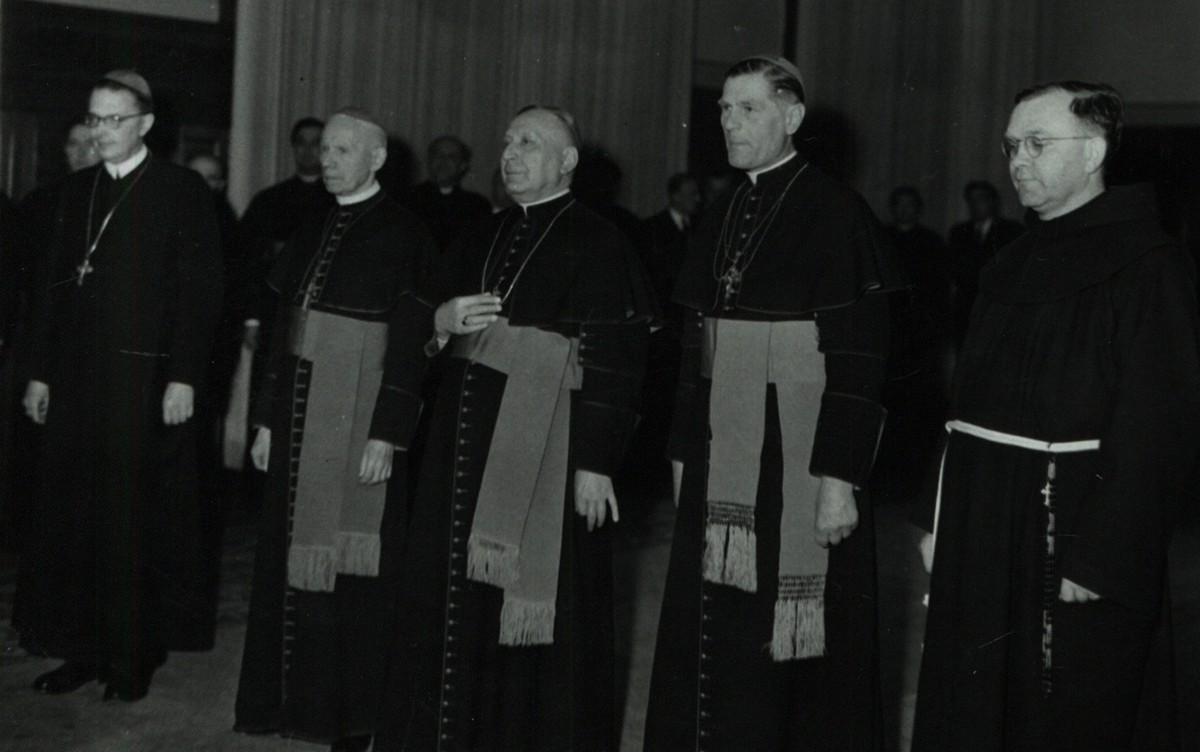Challenges of Secularism and Nation Building in Central Eastern Europe since 1780
The project SOVEREIGNTY offers a collaborative historical analysis of the conflicted relationships among transnational institutions, the sovereign modern state, and the agents at the intersection of the two by examining the evolution of the relationships between the state and one of the world’s oldest transnational institutions, the Catholic Church.

Archbishop Norbert Legányi of Pannonhalma, Bishop Ferenc Rogács of Pécs, Archbishop József Grősz of Kalocsa, Auxiliary Bishop Imre Kisberk of Székesfehérvár and Franciscan Provincial Superior Béla Váradi taking the oath of allegiance in the Munkácsy Hall of the Hungarian Parliament, 24 April 1959. (Archives of the Dioecese and Chapter of Székesfehérvár, IX.5.-Ph.1166)
Short Summary
‘Negotiating Sovereignty: Challenges of secularism and Nation Building in Central Eastern Europe since 1780 (SOVEREIGNTY)’ is a 5-year research project funded by the European Research Council (ERC) which examines the history of the conflicts concerning the oaths of allegiance required from the bishops in the Habsburg Monarchy and its successor states between 1780 and 1990. SOVEREIGNTY is a collaborative project which investigates state-church relations by linking together the historiographies of a particularly multiconfessional and multilingual region and by exploring the archival legacy of several East-Central European countries including Austria, Hungary, Poland, Czechoslovakia, Yugoslavia, and Romania.